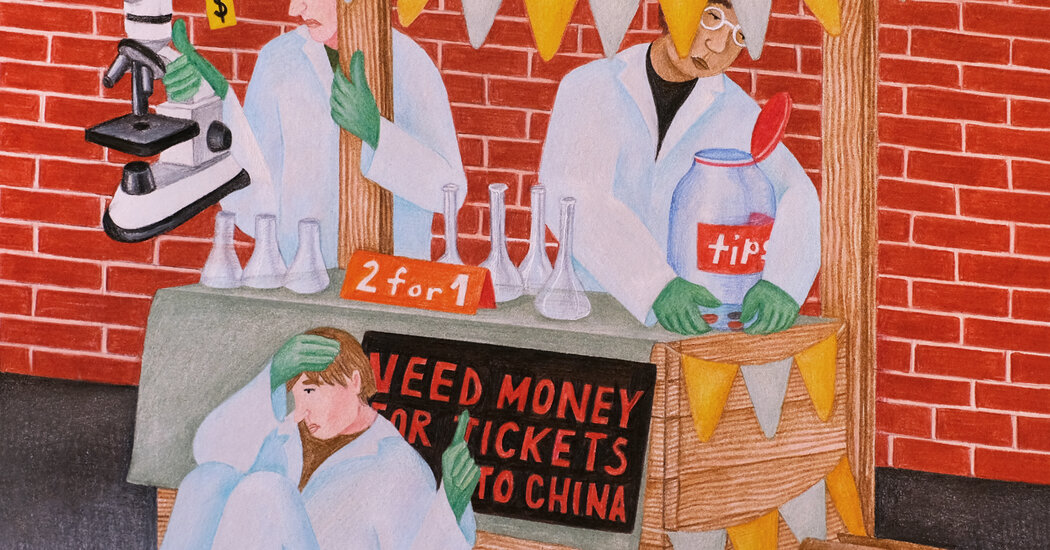This American brain trust has resulted in over 400 Nobel laureates, more than any other country in the world. As of 2023, an estimated 1.2 million people around the world held a Ph.D in science, engineering or health earned at an American institution. The United States accounts for 27 percent of the world’s total research and development activity — the most of any nation — though China, at 22 percent, is closing in. This is still far ahead of the next largest players: Japan (7 percent), Germany (6 percent) and South Korea (4 percent).
This investment has been essential to our economy. More than 408,000 jobs are supported by N.I.H. grants. It’s estimated that every dollar of N.I.H. funding produces $2.56 in economic activity.
So much of that success is because the U.S. government was willing to support the kind of basic science work that takes years, even generations, before resulting in monumental breakthroughs. Hundreds of millions of federal dollars established the groundwork for key breakthroughs in mRNA technology before the Covid-19 pandemic, which helpedset up Operation Warp Speed for success. Ozempic and other GLP-1 drugs were inspired in part by N.I.H.-supported research into Gila monster venom in the 1980s; without that work, we might not have the current weight-loss revolution decades later. Fifty years ago, less than 60 percent of children diagnosed with pediatric cancer survived after five years. Now, thanks to treatments funded and spearheaded by the N.I.H., that survival rate is 85 percent.
America had also been an attractive destination for science because of its express support for free inquiry — the ability of researchers to study what mattered most to them, even if there wasn’t a straight path to success and profit. That commitment appears to be crumbling. “I mourn a world in which science must defend itself through its end products, rather than its underlying search for truth and beauty,” said Daniel Bauman, a 25-year-old Stanford University graduate student studying evolution. “When efficiency is mandated, current and future careers are lost or abandoned. If science funding is made contingent on immediately beneficial results, who will be left to tell the story of nature? Will anyone even be listening?”
Young scientists’ careers are inextricably tied to the grant application cycle. Carole LaBonne, a molecular biologist at Northwestern University, recently told the podcast Odd Lots to think of labs as small businesses that run on very tight operating margins. A grant that provides funding for, say, four years would need to be renewed in year three. And if you can’t do that, people must be let go quickly — which almost always means junior members of the lab. Peter Jacobs, a senior scientist at Lawrence Berkeley National Laboratory, is unsure whether D.O.E. and N.S.F. grants that help fund his program will be renewed — he’s not certain he can keep on his three postdocs, all of whom are already looking at other positions, including in Europe or Asia.
